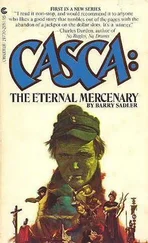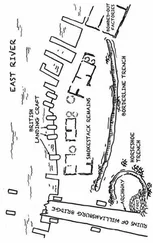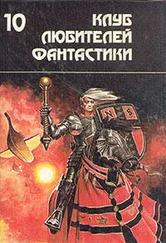“But you can’t ever know what’s inside someone’s heart. Maybe Grandma really did love Miyabe-san.” That was what Keiko was calling him now, Miyabe-san.
“But they were married for just four years, most of which they spent apart, and then he died in battle. So maybe it wasn’t so hard to forget about him.”
Keiko neither agreed nor disagreed with me.
After a little while a tall man in a suit approached. It was Ryuji Takayama, the newspaper reporter. He apologized for his tardiness and hinted that he wouldn’t be able to stay long due to his last-minute assignment.
Takayama had a gentle demeanor. I’d heard he was thirty-eight but he looked younger than that.
“So you’re Kentaro? I’ve burdened your sister at work,” Takayama said with an affable smile after placing his order with the waiter. Since Keiko had said he was an incredibly capable reporter, I had expected him to be a more self-confident and assertive type. Instead there was a soft, kindly presence about him.
He said that the newspaper was planning all sorts of features looking back at the postwar era as next year would mark the sixtieth since the end of WWII. That was why he had taken an interest when he’d heard that Keiko was researching her grandfather who had died as a kamikaze.
“I think the kamikaze attack ”—Takayama appended the English word, making the whole phrase sound foreign—“is a theme we absolutely must include in the feature articles. The pilots were truly unfortunate.” As if in silent prayer, he briefly bowed his head and placed his hands flatly together on the tabletop. “Yet, this isn’t just an issue from the past. It’s extremely depressing to think about, but as we saw with 9/11, the world today is full of terrorist suicide bombings just like the kamikaze attack of old. I wonder why.” Takayama gave a faint sigh, then leaned forward slightly and said, “I think that in order to comprehend the phenomenon, it’s necessary to reconsider Japan’s kamikaze attack from a whole new point of view.”
“Takayama-san, are you saying that the structure of terrorist suicide bombings and the Japanese kamikaze were the same?”
Takayama nodded. “Historically speaking, organized suicide attacks are extremely rare, and the kamikaze attack of old and the terrorist suicide bombings of Islamic fundamentalists today are the two representative instances. Yes, I think it’s natural to assume there are common traits between them. In fact, there are newspapers in America that refer to the contemporary terrorist incidents as a kamikaze attack. ”
Takayama spent more time looking at my sister than me during his reply.
It was obvious he was the person Keiko had in mind when she said she was just “parroting” her take on kamikazes. However, researching my grandfather, I’d come across more than a few experts on the Internet and elsewhere who held that “kamikaze” and “terrorist” were one and the same. It apparently wasn’t all that rare a view. Some famous TV newscasters had voiced similar opinions. As I was sadly uninformed about the kamikazes, I found myself unable to agree or disagree on that issue.
Takayama continued, “Reading the kamikazes’ diaries, you see that many of the pilots were willing to give up their lives out of a religious spirit of martyrdom. Some even wrote that the day of their sortie was a day of great joy. But that shouldn’t merit surprise. Before the war, Japan was considered the land of the gods, ruled by the Emperor, himself a living god. Perhaps it was only natural that many youths felt joy at the prospect of martyring themselves for the sake of their country.” Takayama cast his eyes downward. “To put it plainly, it’s martyrdom, and it’s this spirit that Islamic extremists who conduct suicide attacks as acts of terrorism share.”
Takayama’s argument was logically consistent, but I wasn’t able to readily accept everything he said, probably because I wasn’t willing to concede that my grandfather was a terrorist.
“You said your grandfather was a kamikaze attack pilot?” Takayama asked Keiko, to which she nodded. “Well, it gives me great pain to say this regarding your late grandfather…”
“I don’t mind. Please, continue.”
Takayama seemed hesitant but gave a slight nod at Keiko’s words and said, “I think the kamikaze attack people who gave their lives for the Emperor and the state were fanatical nationalists.”
My sister nodded again, but I found myself wanting to argue. “Our grandfather was someone who valued his life, though. He wanted to live for his family’s sake.”
“People always love their families. But before the war, all Japanese were taught that the Emperor was a living god, and many people accepted their indoctrination. This wasn’t your grandfather’s fault. The blame lies with the times.”
“I can’t be sure, but I doubt my grandfather placed the Emperor above his own family.”
Takayama nodded and took a sip from his coffee. “You don’t know very much about that era. Before the war, Japan was a country of fanatics. A large percentage of the populace was brainwashed by the military and believed that dying for the Emperor was not only sufferable but even a joyous deed. I believe it’s the mission of us journalists not to allow this country to become like that again.”
“But I never ever heard my grandmother, who survived the war, say, ‘ Banzai. Long live the Emperor.’”
“That’s because the brainwashing came undone. I believe that an army of political theorists and journalists who came before me brought the populace to its senses after the war. I became a newspaperman because I wanted to follow in their footsteps. And I still aim to become a true journalist.”
Takayama gave a bashful smile. He seemed very sincere. Keiko was staring at his profile with a trusting expression.
I pondered what he had said and concluded that on the whole, he was correct. But deep in my heart I felt something was off, even though I couldn’t say what. After considering for a moment, I ventured, “I don’t believe the mental make-up of Japanese and the Islamic extremists are the same.”
“I didn’t say all Japanese. I am speaking of the similarities between kamikazes and suicide bombers.”
“Doesn’t that amount to arguing that the kamikazes were special?”
Takayama inclined his head questioningly. “What do you mean?”
“Were the kamikaze pilots so special, so unique? I don’t think they were. I think they were typical Japanese. Aside from the fact that they happened to be pilots, weren’t they just ordinary people?”
Takayama lowered his gaze and fell into a brief silence. “This is a very basic thing, but those men who volunteered for the kamikaze forces were not conscripts. They weren’t called up by the draft and forcibly sent to the battlefront. Had the kamikaze attack been carried out by conscripts, I think I, too, would view the matter in a different light. But at the time, aircrew were comprised entirely of volunteers. The student reservists, the boy pilots, all of them. Which is why I’d go as far as to say that all kamikazes were people who wanted to join the military, who chose to fight.”
I saw what he was getting at.
“Your grandfather joined the Navy at age fifteen, right? That means he enlisted, he wasn’t drafted.”
Before I could respond, Keiko interjected, “Takayama-san, you mean to say that the mental make-up of conscripts and volunteers were different to begin with, correct? That those who enlisted of their own free will already had what it took to be part of the kamikaze forces?”
“Exactly, Saeki-san. But I’m not saying they were completely different. I just think that the volunteers had a stronger than average desire to dedicate their lives to their country to begin with.”
Читать дальше

![Nick Cracknell - The Quiet Apocalypse [= Island Zero]](/books/28041/nick-cracknell-the-quiet-apocalypse-island-zero-thumb.webp)










